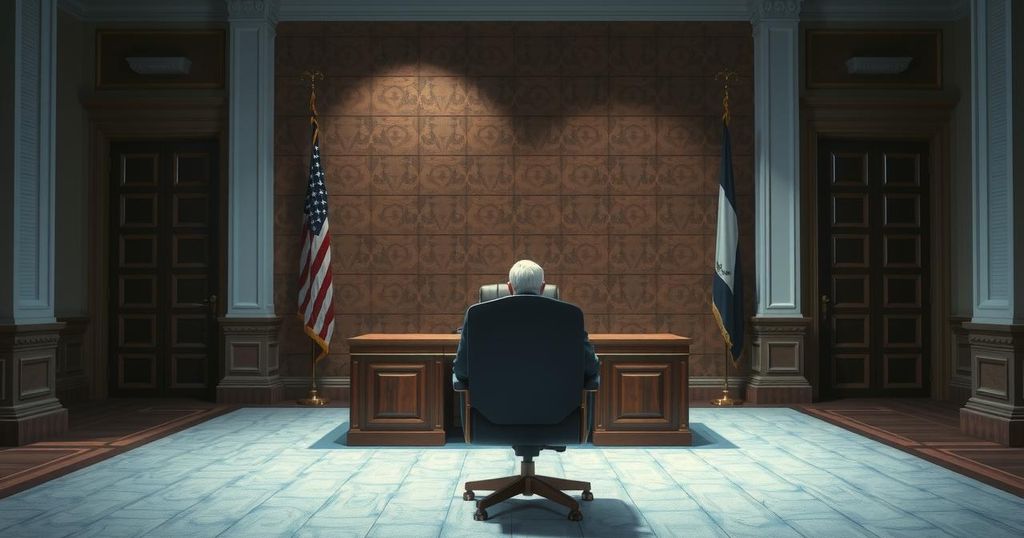South Sudan President Kiir Dismisses Vice-Presidents and Spy Chief

South Sudan President Salva Kiir has dismissed two vice-presidents, the spy chief, and other senior officials, citing no explanations for these significant changes amid ongoing political instability. The dismissed vice-presidents included long-serving official James Wani Igga and Hussein Abdelbagi Akol, while Benjamin Bol Mel has been appointed in Igga’s place. These alterations occur as the nation continues to navigate its post-civil war recovery and postponed elections scheduled for December 2026.
President Salva Kiir of South Sudan has dismissed two vice-presidents, the country’s spy chief, and several senior officials in a series of presidential decrees that were aired on state media. No reasons were provided for these dismissals, which are a continuation of the power dynamics within the nation, founded on the peace agreement established in 2018 to resolve the civil war issues.
Among those ousted is James Wani Igga, a seasoned politician who had served as vice-president since 2013 and held the position of deputy chair of the ruling SPLM party. The second vice-president dismissed was Hussein Abdelbagi Akol, representing the opposition alliance SSOA; he has since been appointed minister for agriculture, succeeding Josephine Joseph Lagu, who now assumes a vice-presidential role.
Benjamin Bol Mel, previously the special presidential envoy for special programs and known for being sanctioned by the U.S. for alleged corruption in 2017, will step in to replace Igga as vice-president. There are speculations surrounding Mel as a possible successor to President Kiir, but no official comment has been made on this matter.
President Kiir has not yet appointed new replacements for the health minister and the governor of Western Equatoria, both aligned with Riek Machar’s party. Additionally, the president has failed to name a successor for the recently dismissed spy chief, Akec Tong Aleu, who had served for only four months.
The 2018 peace deal grants President Kiir the authority to appoint and dismiss officials at both national and state levels. Dismissal of officials from other political parties requires the constituency consent; however, it remains unclear whether consultations were held regarding the recent changes involving Machar’s party. The SPLM-In Opposition has not issued any statements regarding these dismissals.
Since gaining independence in 2011, South Sudan has not held any elections, with the first one scheduled for 2015 being delayed due to civil conflict. Although elections were supposed to occur in 2022, they have been postponed again, now expected in December 2026, as leadership in South Sudan grapples with ongoing political instability.
In summary, South Sudan’s recent political upheaval includes the dismissal of key leaders by President Salva Kiir, reflecting ongoing governance challenges. The changes come without explanation and amidst a backdrop of unresolved conflicts following the civil war and stalled electoral processes. As the nation moves toward a future vote slated for 2026, the political landscape remains uncertain, raising questions about the stability and legitimacy of its governance framework.
Original Source: www.bbc.co.uk







